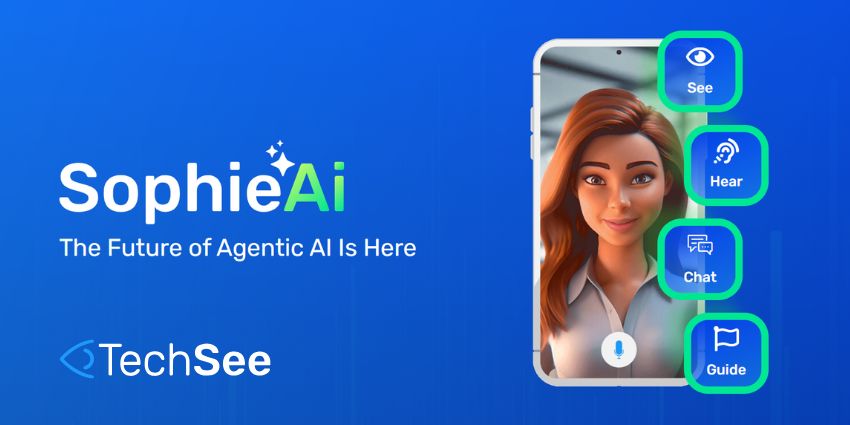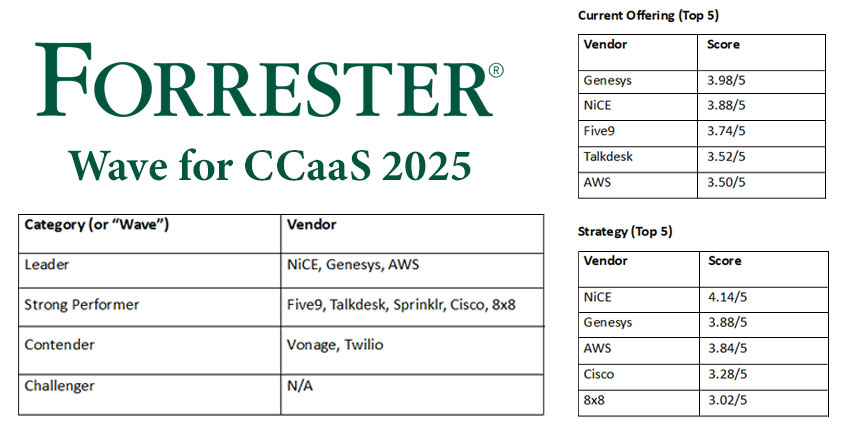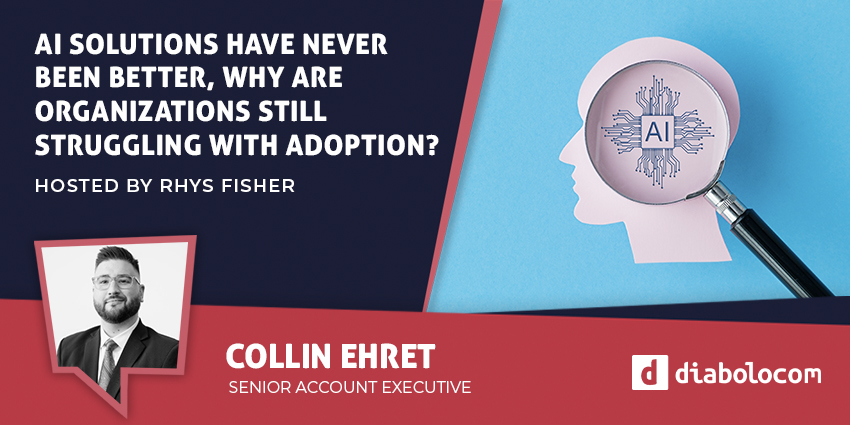Google has announced three new GenAI-driven features for its Contact Center AI Platform: Knowledge Assist w/ LLMs, Summarizations for Calls & Chats, and Generative FAQs.
These features – as showcased during this week’s Google Cloud Next event – bolster the agent-assist and conversational intelligence features already within the CCaaS solution.
1. Knowledge Assist w/ LLMs
First, consider Knowledge Assist w/ LLMs – which is now in preview. The feature automates information retrieval for agents from the knowledge base, guides, and run books.
The solution then uses generative AI to spotlight snippets of information agents can use in their responses – across many channels.
As Shantanu Misra, Group Product Manager at Google Cloud, summarized:
Think of it as the info bot for your agents… It provides them with answers as the conversation is going on, so they don’t need to search for it.
Misra suggests that possible benefits of the solution include lower handling times, better agent responses, and increased customer satisfaction with agent effectiveness.
2. Summarizations for Calls & Chats
Now generally available, this solution automates post-contact summaries for agents, which they then upload to their CRM system.
As a result, agents don’t have to manually type contact summaries, which ensures a uniform format, circumvents the risk of human error, and – perhaps most crucially – saves time.
Doubling down on that last benefit, Misra stated:
We’ve had customers whose agents spent 90 seconds at the end of a call summarizing the conversation and updating the system of record. We have been able to bring that time down to near zero.
Many of its CCaaS rivals have also released similar tools. Although, Google offers the solution across 11 languages and can create summaries “at any point” in the conversation.
Interestingly, that includes during a bot-handoff and escalation. As such, the second agent picking up the contact has the necessary context to best serve the customer – who, in turn, doesn’t have to repeat themselves.
With these two tools, Google presents an advanced agent-assist portfolio within its CCaaS platform – as the image below showcases.

3. Generative FAQ for CCAI Insights
CCAI Insights is the conversational intelligence solution within Google’s CCaaS platform, which aims to turn contact center data into insights and then actions.
It works by giving users a space to upload audio files and redacted transcripts. From there, the solution extracts annotations and generates metrics.
Annotations include topics, highlights, and contact summaries. Meanwhile, metrics include call metadata, customer satisfaction, and automated quality scores.
All this insight helps Contact Center AI (CCAI) users to advance agent coaching, improve contact center workflows, and build better bots.
Now, Generative FAQ – which is in preview – takes this further. It utilizes GenAI to extract the most critical questions from live and virtual agent conversations. That aids contact centers in spotting gaps in their agent support content.
Moreover, it helps to inform knowledge base reviews, process fixes, bot containment programs, and contact center performance management strategies.
“It allows the contact center to become much more dynamic instead of following a once-a-year process of figuring out those FAQs,” added Misra.
Alongside the new summarizations, this will soon be available within the CCAI Platform – alongside Google’s new, alternative contact center solution.
Introducing Google CCAIP: Intelligent Virtual Agent-Only
Google has launched a new CCaaS platform as an alternative to its current Contact Center AI Platform offering.
The solution acts as a “lightweight bridge”, connecting a business’s existing contact center infrastructure – whether that is Avaya, Cisco, or Genesys – to many of the tools within its CCAI Platform.
Those tools include CCAI Insights, Summarization, and Dialogflow – which offer contact centers a first step into the world of cloud contact centers.
“We understand the complexity of moving from an on-prem contact center and how it can be a multi-year journey,” said Misra. “That’s why we created the Google CCAIP: Intelligent Virtual Agent-Only option.
It gives you a way to consume all of our GenAI services by having a light-touch pipeline from your existing contact center to Google CCAI.
Indeed, by launching this solution, Google is allowing contact centers to choose their path to the cloud – whether that is a full-scale migration or a slow and steady hybrid approach.
Native Workforce Management In the CCAI Platform
Back to Google’s core CCaaS solution, and the vendor has added a native workforce management (WFM) module to the CCAI Platform.
“The idea of the CCAI Platform is to be as comprehensive as possible,” added Misra. “Our WFM announcement is a key piece of that.”
Already, it includes forecasting, scheduling, and reporting tools.
In addition, it features some advanced, new-age WFM capabilities, including shift bidding. This allows agents to continually apply for available shifts – crafted to best meet forecasted demand – instead of following the same old schedules.
Google also provides an out-of-the-box agent, supervisor, and admin UI for managing WFM configurations – alongside embedded reporting within the CCAI Platform.
Nevertheless, contact centers may wish to stick with their trusted, mature workforce engagement (WEM) solutions, such as those provided by Verint and Alvaria.
Recognizing this, Google has established partnerships and out-of-the-box integrations with their WFM products.
Misra added that it also has a roadmap for NICE and other prominent WEM providers.
What’s New In Dialogflow?
Finally, Google announced several LLM-powered enhancements to Dialogflow, its conversational AI platform, to further enhance contact center conversations.
During his presentation, Misra showcased the following three examples that particularly excite him.
- Answers from Content (Generally Available) – This feature allows contact centers to create a virtual agent experience “at a click of a button” by linking it to various knowledge sources. That may include the knowledge base, online FAQs, and other web links.
- Generative Responses (Generally Available) – When a trained bot cannot answer a query, the contact center can enable Generative Responses to give the business a “fallback” answer to the customer’s question.
- Generative Flows (In Preview) – This feature allows the developer to write in natural language what they want the bot to do, and it’ll try to replicate that. For instance, consider a takeaway business. The designer can hand over the menu and tell it to “act as a courteous agent and take orders from this menu.” Then, that’s it. There’s no need to create thousands of intents, flows, and dialogs.
While introducing these tools, Misra stressed that businesses already utilizing Dialogflow don’t have to sacrifice all their existing hard work by embracing these new features.
Instead, they can begin to augment their current virtual agents with elements of generative AI.
That’s crucial, as businesses’ views on the extent to which generative AI should drive service experiences are likely to be very different.
Elsewhere in Dialogflow, Google already has a GenAI-powered feature that allows the virtual agent to carry over context from previous conversations.
Meanwhile, the tech giant has also introduced non-GenAI-related enhancements to Dialogflow. The most intriguing is seemingly its new Dialogflow Call Companion solution.
The Call Companion offers an interactive visual interface on a customer’s phone as they engage with a DialogFlow voicebot.
That allows the bot to share text, images, and other visual elements – such as critical cards – with customers during voice interactions. In doing so, it leverages the value-add of customer smartphones.
More from Google In the Contact Center
Last month, CX Today caught up with Amit Kumar, CCaaS Product Manager at Google, to learn more about its CCaaS mission.
Kumar discussed Google’s primary contact center differentiators, shared the opportunity he sees in the CCaaS space, and teased future innovations.
To uncover all this and more, read our article: Google Aims to Disrupt the CCaaS Market, and It Brings Big Differentiators







